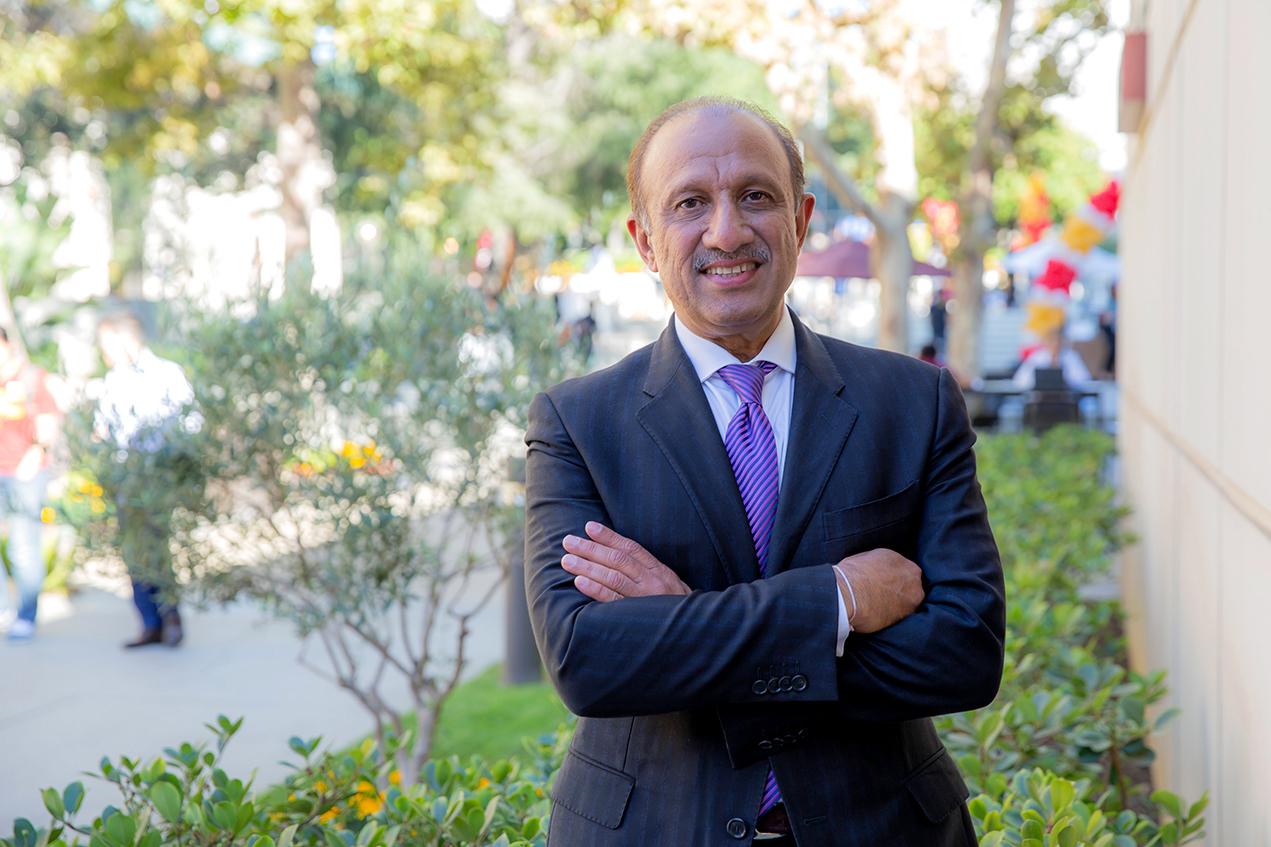When Inderbir S. Gill, MD, took over as chair of the Catherine and Joseph Aresty Department of Urology at the Keck School of Medicine of USC in 2009, the department, albeit smaller, had an outstanding reputation for open urologic oncologic surgery, including novel techniques for treating bladder and testicular cancer. This strong foundation, built by founding chair Donald Skinner, MD, positioned the department for next-level growth.
Surgical and clinical excellence, according to Gill, is the cornerstone around which he and his team set out to build and grow USC Urology, the clinical urology practice at Keck Medicine of USC. He believed that talented and innovative surgeons performing advanced surgeries covering the complete suite of urologic subspecialties would boost the department’s reputation, stature and patient volumes. This would allow him to recruit scientists and physician-scientists to advance basic and translational research in the field.
“As a surgical specialty at the core, we must deliver cutting-edge surgical excellence, first and foremost,” Gill said. “If a urology department has any pretensions to world-class stature, it has to show world-leading surgical and medical capabilities and, in addition, lead in innovation and discovery of new cures.”
Ten years after Gill took over the job, USC Urology has achieved just that. US News & World Report ranked USC Urology fourth in the nation in 2019. In the past decade, USC Urology’s growth rate outpaced all other urology departments in the nation in all three key metrics used by US News & World Report. Its reputation score grew by 78% in the past 10 years, surgical volumes grew by 91% and overall ranking grew by 81%.
While open surgery was once the sole hallmark of the department, USC Urology now is recognized for its depth and breadth of expertise across the entire range of urologic subspecialties. USC Urology now has arguably the world’s most advanced robotics surgical team, a team that has developed novel complex oncologic robotic surgeries, as well as robotic simulation and training.
Several surgeons specializing in robotic surgery from the Cleveland Clinic, where Gill was chairman of the department of urology before moving to Keck Medicine, also made the move to Keck Medicine, bringing with them years of experience in leading-edge robotic surgery. Now, with more than seven robotic surgeons in the department, the number of robotic surgeries performed swelled from only 29 in 2009 to more than 1,000 in 2018.
The same holds true for other urologic subspecialties. USC urologists are leaders in the fields of female pelvic reconstructive surgery; complex endourology and intra-renal surgery; pediatric urology; complex male reconstructive and prosthetic surgery; advanced micro-surgery for male infertility; and leading-edge focal and targeted therapies for prostate cancer.
As a result, clinical volumes have more than quadrupled in the past 10 years, from 10,000 to 48,000 annual patient visits. Urology inpatient volumes increased from fewer than 4% of all admissions in 2009 to 16% in 2019, among the highest within Keck Hospital. Within Los Angeles, USC Urology has gone from being the among the lowest to one of the highest volume teams.
Gill added that the number of departmental faculty and fellows has increased dramatically as has its reach, as the department has opened several satellite locations across Southern California since 2009. The number of collaborators conducting basic and translational research with the department has increased as well.
“Our researchers are doing pioneering epigenetics and stem cell research, single-cell genomics, mathematical oncology, drug discovery, robotic simulation, female pelvic medicine and neuro-urology,” Gill said. “These are now becoming thriving research enterprises that strongly complement our surgical innovation.”
The department’s research portfolio is evolving. From innovating surgical techniques, to devising newer diagnostics and drug therapeutics for urologic cancers, to simulating robotic training, USC is helping improve future treatments.
“At USC Urology, we are helping forge new horizons to help patients everywhere,” Gill concluded. “Yes, our growth has been gratifying, but we are only just getting warmed up!”
— Hope Hamashige


